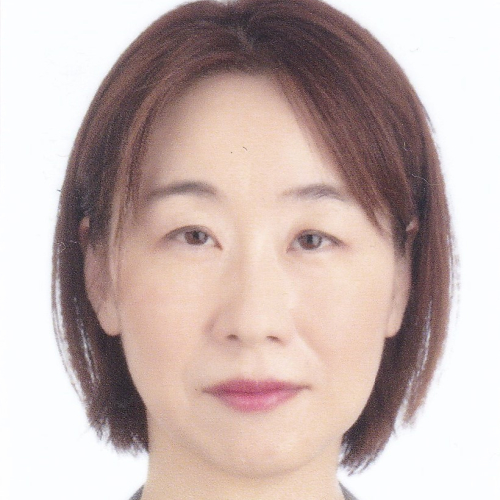
Dr Setsuko Sonoda
I am a Japanese scholar specializing in modern Chinese history and area studies. Partially due to my family history in southern Japan where there are many home villages of Japanese who emigrated to the Americas in the first half of the twentieth century (my great-grandfather’s sister was a picture bride who married a Japanese Canadian in Alberta), I have been fascinated with the study of Asian migrants and their descendants outside Asia. In particular, the Chinese diaspora in the Americas and its transnationalism provide us with new perspectives and clues to understand our contemporary world in a broader global setting: The Chinese emigration that occurred prior to the Japanese migration highlights the historical fact that the presence of the Chinese in the Americas has affected concepts of race and nation-state in the receiving countries; the Chinese government and Chinese nationalists built a nation-state by including its overseas compatriots; the overseas Chinese have struggled to build their own identity around both their sending and receiving countries’ societies through various means, which helped to develop the resilience of their community. We can learn much about China by studying the Chinese who live outside their country of origin.
I am preparing the draft of a book about the transnational history of the Chinese in the British colonies
between the British West Indies and British Malaya from the 1800s to the 1970s. For this project, I came here to use the archives of the British colonies stored in Britain. Professor Henrietta Harrison of Pembroke College has been kind enough to act as my host professor so that I could join this academic community to engage in discussions about my project and those of others here.
I would be more than happy to share my academic interests, discussions, and research methodologies on the Chinese diaspora and other topics with the College’s academics. I have been a world traveler conducting archival research on, observing the communities of, and interviewing the Chinese in Japan, Canada, the US, Trinidad and Tobago, Costa Rica, Peru, Chile, Argentina, Brazil, and Taiwan. I can advise on archival research methods, and provide information on and teach about the Chinese diaspora as well as China’s extraterritorial policies. Also, I can advise history students in archival research methods used at the main institutes in Japan, such as the National Diet Library, the Oriental Library, and the Japan Center for Asian Historical Records. In addition, I have carried out two research projects sponsored by the Japan Society for the Promotion of Science. For the first, International Comparative Studies on Transnational Politics: Analyzing the Sending Countries and the Societies with Diaspora Populations in the Modern Period, I was the Principal Investigator and for the second, Forming New Ties in the Pacific Rim: East Asia and Latin America, I was a Co-investigator. I would like to find colleagues in the College in East Asian and Latin American studies who are interested in building networks and further developing these two projects.
Dr Setsuko Sonoda

I am a Japanese scholar specializing in modern Chinese history and area studies. Partially due to my family history in southern Japan where there are many home villages of Japanese who emigrated to the Americas in the first half of the twentieth century (my great-grandfather’s sister was a picture bride who married a Japanese Canadian in Alberta), I have been fascinated with the study of Asian migrants and their descendants outside Asia. In particular, the Chinese diaspora in the Americas and its transnationalism provide us with new perspectives and clues to understand our contemporary world in a broader global setting: The Chinese emigration that occurred prior to the Japanese migration highlights the historical fact that the presence of the Chinese in the Americas has affected concepts of race and nation-state in the receiving countries; the Chinese government and Chinese nationalists built a nation-state by including its overseas compatriots; the overseas Chinese have struggled to build their own identity around both their sending and receiving countries’ societies through various means, which helped to develop the resilience of their community. We can learn much about China by studying the Chinese who live outside their country of origin.
I am preparing the draft of a book about the transnational history of the Chinese in the British colonies
between the British West Indies and British Malaya from the 1800s to the 1970s. For this project, I came here to use the archives of the British colonies stored in Britain. Professor Henrietta Harrison of Pembroke College has been kind enough to act as my host professor so that I could join this academic community to engage in discussions about my project and those of others here.
I would be more than happy to share my academic interests, discussions, and research methodologies on the Chinese diaspora and other topics with the College’s academics. I have been a world traveler conducting archival research on, observing the communities of, and interviewing the Chinese in Japan, Canada, the US, Trinidad and Tobago, Costa Rica, Peru, Chile, Argentina, Brazil, and Taiwan. I can advise on archival research methods, and provide information on and teach about the Chinese diaspora as well as China’s extraterritorial policies. Also, I can advise history students in archival research methods used at the main institutes in Japan, such as the National Diet Library, the Oriental Library, and the Japan Center for Asian Historical Records. In addition, I have carried out two research projects sponsored by the Japan Society for the Promotion of Science. For the first, International Comparative Studies on Transnational Politics: Analyzing the Sending Countries and the Societies with Diaspora Populations in the Modern Period, I was the Principal Investigator and for the second, Forming New Ties in the Pacific Rim: East Asia and Latin America, I was a Co-investigator. I would like to find colleagues in the College in East Asian and Latin American studies who are interested in building networks and further developing these two projects.